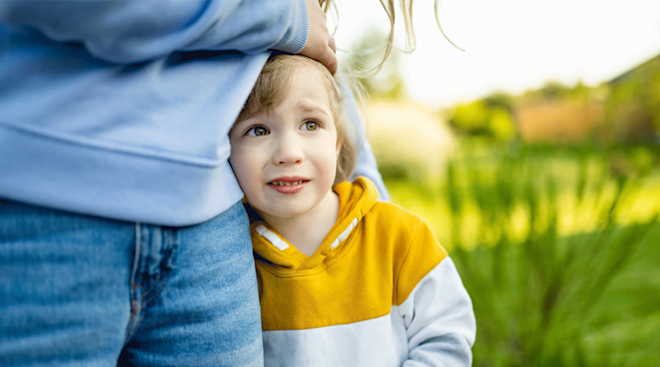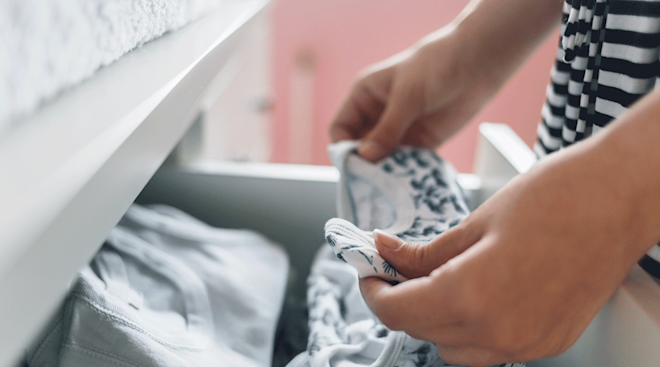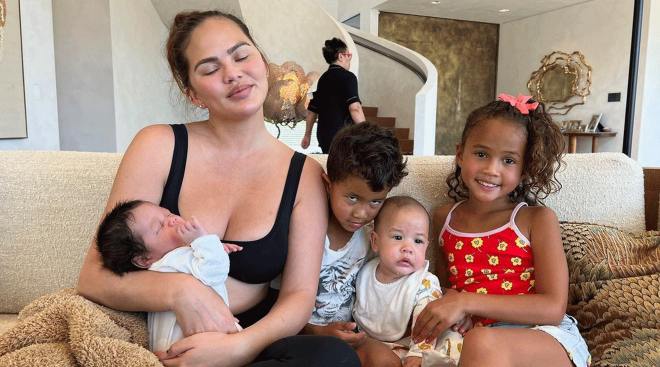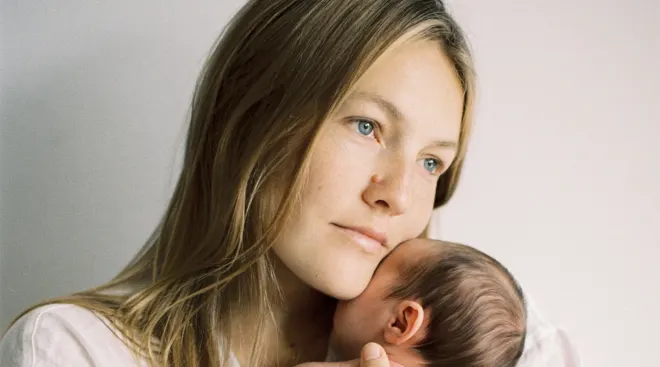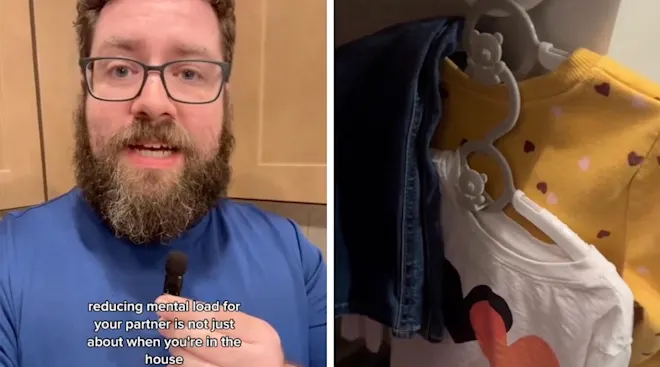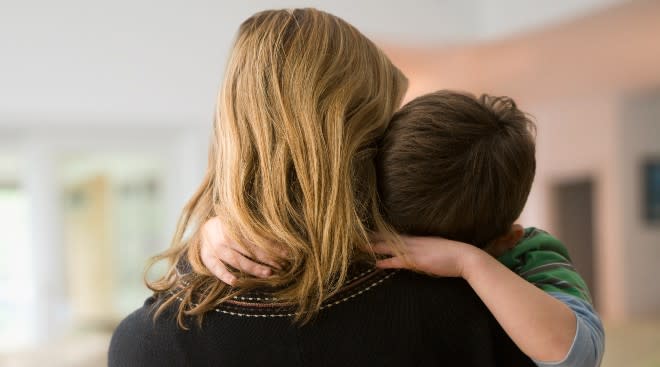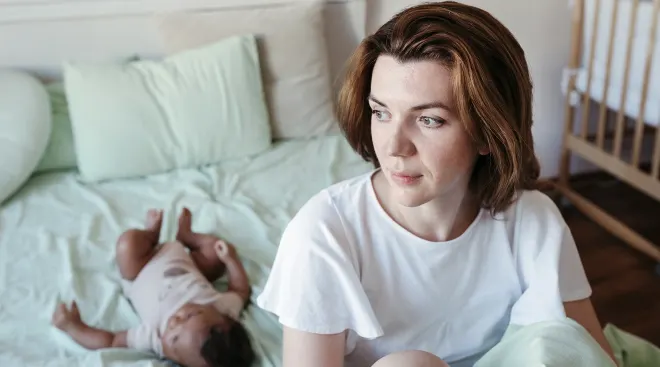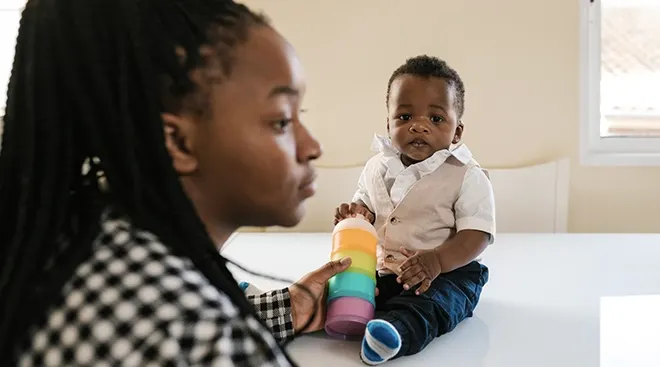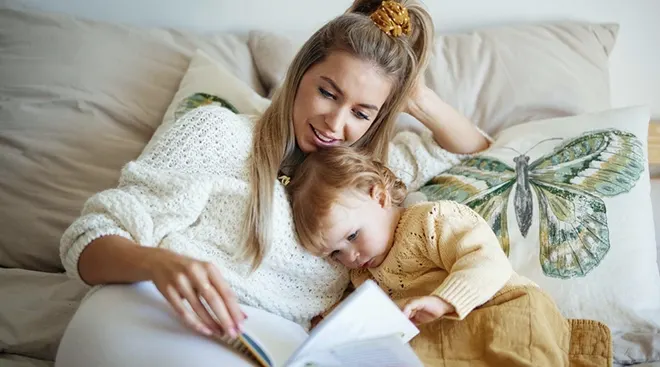Intensive Parenting Is Taking a Toll on You and Your Family
We don’t need to tell you that parents are stressed. In today’s world, we don’t have a lot of support—like affordable childcare—and many of us have financial, safety and well-being concerns. It’s gotten so bad that US Surgeon General Vivek Murthy, MD, recently issued an advisory calling for better mental health support for parents and caregivers. In it, he cited a survey from the American Psychological Association (APA) that found 33 percent of parents reporting high stress levels compared to 20 percent of other adults.
While external pressures play a huge role in parental stress, some of this may also be due to the rise of intensive parenting—i.e. when parents overextend themselves in order to improve their kids’ lives. Intensive parenting (somewhat similar to helicopter parenting) has been shown to be detrimental to both parents’ and kids’ mental health, but it’s no wonder that so many are practicing it—it’s a competitive and dangerous world. Ahead, experts break down what you should know about intensive parenting, including the toll it can take on you and tips to step back and give yourself a break.
The intensive parenting style is “a highly involved approach where parents prioritize their children’s development and success above other aspects of life,” says Francyne Zeltser, PsyD, a psychologist and clinical director of mental health and testing services at Manhattan Psychology Group. “These parents devote substantial time, attention and resources to their child’s well-being, engaging deeply in areas such as academics, extracurricular activities, emotional health and social interactions. This style often requires parents to structure their lives around their child’s needs.” She adds that intensive parents tend to invest considerable resources both emotionally and financially, “and often take a protective stance to minimize risks and challenges, aiming to ensure a smooth path to success.”
Laila Rubin, LCSW, a clinical social worker and mental health therapist in Atlanta, notes that intensive parenting is now a popular style in many developed countries and across socioeconomic statuses, calling it “the new norm.”
When taken to an extreme, this parenting style can certainly have negative outcomes. But some aspects of intensive parenting can be beneficial. Rubin notes that possible upsides include:
- Potentially stronger parent-child attachment bond, as you spend more time together
- A more active presence in your kids’ lives, which can lead to a better understanding of their “needs, wants, strengths and challenges”
- Potential to positively influence kids’ growth and development. “If done effectively, this more hands-on approach could lead to enhanced academic performance, improved confidence and better problem-solving skills in children,” she says.
- A stronger sense of values and discipline in children
While there are pros to caregiver involvement, more intensive parenting can have a negative effect on both parents and children—particularly when it comes to mental health. For parents, the primary risk is parental burnout, which can lead to other mental and physical health issues. High expectations for yourself and your child, along with work and household responsibilities, “can lead to stress, exhaustion, overwhelm [and] lack of self-care,” says Rubin. “In return, this could impact their mental health, mood and quality of parenting and relationships.”
Kids with intensive parents may experience feelings of pressure, doubt, low self-esteem, inadequacy and anxiety if their parents’ expectations are too high, says Rubin. Additionally, they may have trouble building independence and problem-solving skills. “The lack of unstructured time due to constant activities can limit creative exploration, and the protective nature of this parenting style may hinder a child’s ability to develop independence and resilience, as they miss opportunities to face challenges, make mistakes and learn from them,” says Zeltser.
If intensive parenting sounds familiar to you, don’t worry: You’re not alone. But there are steps you can take to rein in the “intensive” part and improve your family’s mental health. Here are a few tips the experts recommend:
1. Set realistic expectations
Easier said than done, we know. But according to the APA, research shows that parents who are perfectionists and put pressure on themselves experience higher rates of burnout. Try to avoid saying you “should” do certain things, and reframe your thoughts in a realistic way. “Learn about your own triggers, expectations, childhood experiences, challenge ‘norms’ and reframe values that promote sustainability,” says Rubin.
2. Build in downtime
Take breaks and try to avoid overscheduling. “Limit over-scheduling to allow for unstructured time and relaxation for both parents and children,” suggests Zeltser. If need be, pencil the downtime into your calendar!
3. Encourage independence
Even in the toddler stage, it’s important to start building independence. Have your little one help with small tasks, or do things like hang up their own coat. “Parents should encourage their child to take on responsibilities to build their independence and reduce their workload,” says Zeltser. She adds that it’s important to establish and maintain “clear boundaries between parenting and personal time.”
4. Ask for help
While it may be hard to find a community these days, oftentimes a good friend or close family member is more than willing to pitch in. There’s no shame in asking for help when you need it!
5. Talk it out
Rubin suggests tapping into your support network if you’re struggling. When you openly share your feelings of burnout, you’ll find more like-minded parents than you might think. It’s also important to seek out professional mental health support if needed.
6. Let your kids be who they are
You don’t need to fill all their time with enriching and educational activities. “What can happen with well-meaning parents who want the best for their child is they may think they want success for their child, and they do, but they forget that success includes happiness and pursuit of personal passion and joy,” says Fran Walfish, PsyD, a Beverly Hills, California–based child, parenting and relationship psychotherapist and author of The Self-Aware Parent.
7. Pay attention to your mental health
Don’t wait until red flags come up; listen to yourself on a daily basis. “Higher levels of anger, resentment, frustration could be a sign that needs are unmet” and it’s time to take a step back, says Rubin. “Remember that a healthy mother is better able to support her children than a stressed and burnt out mother.”
8. Know yourself as a parent
Don’t try to be someone you’re not, because it’ll just stress you out more. “Be brutally honest: Are you a softie or are you harsh when it comes to discipline?” says Walfish.
9. Arm your child with coping skills for the future
This will help your kid build resilience. “To be a good parent, you need to separate your child from you—you’re not merged as one,” says Walfish. “Your goal is to … equip your child with coping skills to deal with everyday disappointments.” She adds that it’s important to “empower your child rather than letting your child absorb your own anxiety.”
10. Recognize that some factors will be beyond your control
It’s important not to blame yourself for feeling overwhelmed. There are so many factors that are contributing to parental stress these days, notes Rubin, including financial stress, kids’ healthcare needs, lack of affordable childcare, lack of support networks and social media—which contributes to “societal expectations, comparative suffering, unrealistic norms and pressures to meet perceived parenting standards.” We’re all doing the best we can with what we’ve got!
Plus, more from The Bump:
Laila Rubin, LCSW, is a clinical social worker and mental health therapist in Atlanta. She received her master’s degree in social work from Georgia State University.
Fran Walfish, PsyD, is a Beverly Hills, California–based child, parenting and relationship psychotherapist and author of The Self-Aware Parent.
Francyne Zeltser, PsyD, is a psychologist and the clinical director of mental health and testing services at Manhattan Psychology Group.
US Department of Health and Human Services, U.S. Surgeon General Issues Advisory on the Mental Health and Well-Being of Parents, August 2024
American Psychological Association, Parental Burnout and Stress, July 2024
The Atlantic, How to Quit Intensive Parenting, May 2022
Frontiers in Psychology, Impact of “Intensive Parenting Attitude” on Children’s Social Competence via Maternal Parenting Behavior, May 2024
Journal of Child and Family Studies, Risk Factors for Parental Burnout Among Finnish Parents: The Role of Socially Prescribed Perfectionism, October 2019
Navigate forward to interact with the calendar and select a date. Press the question mark key to get the keyboard shortcuts for changing dates.







































